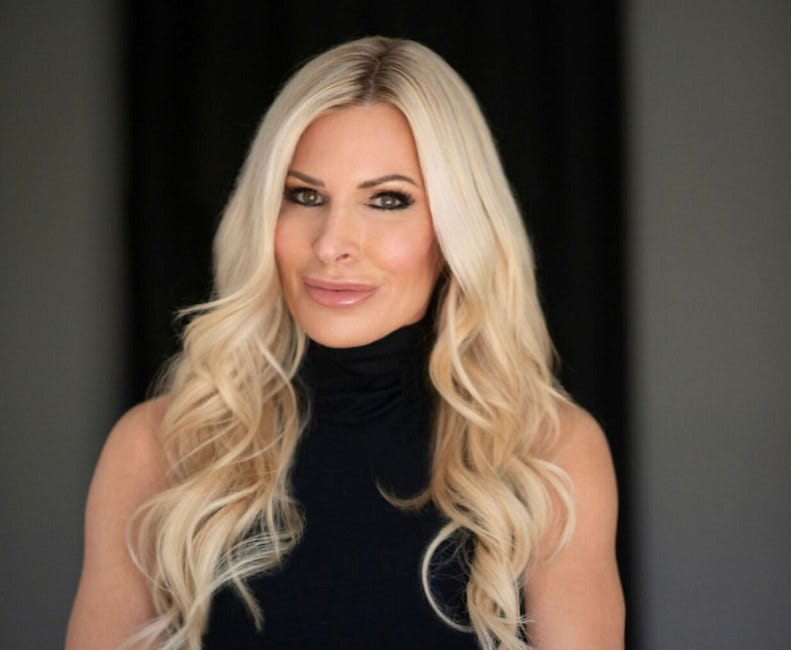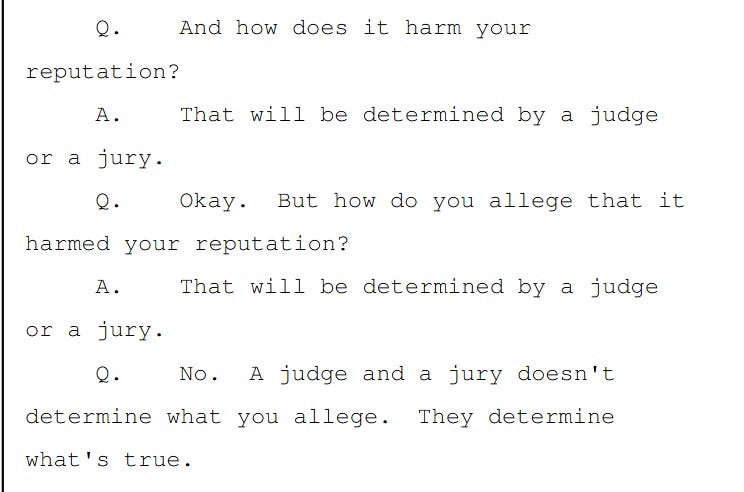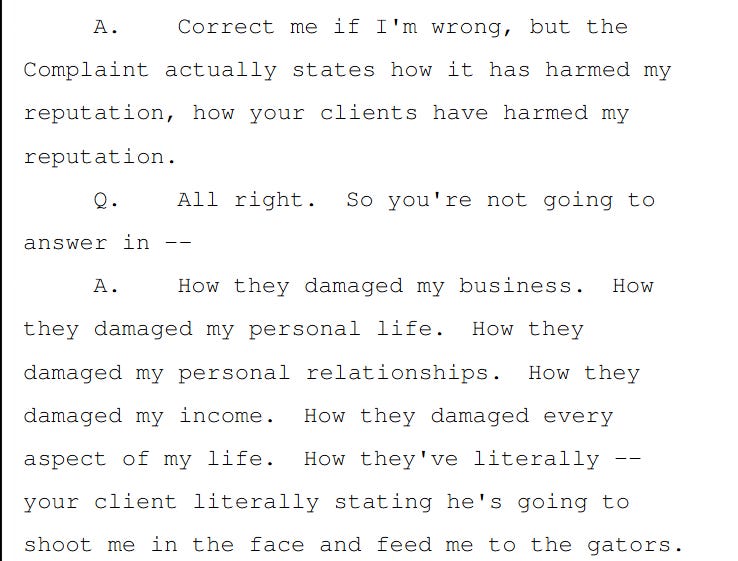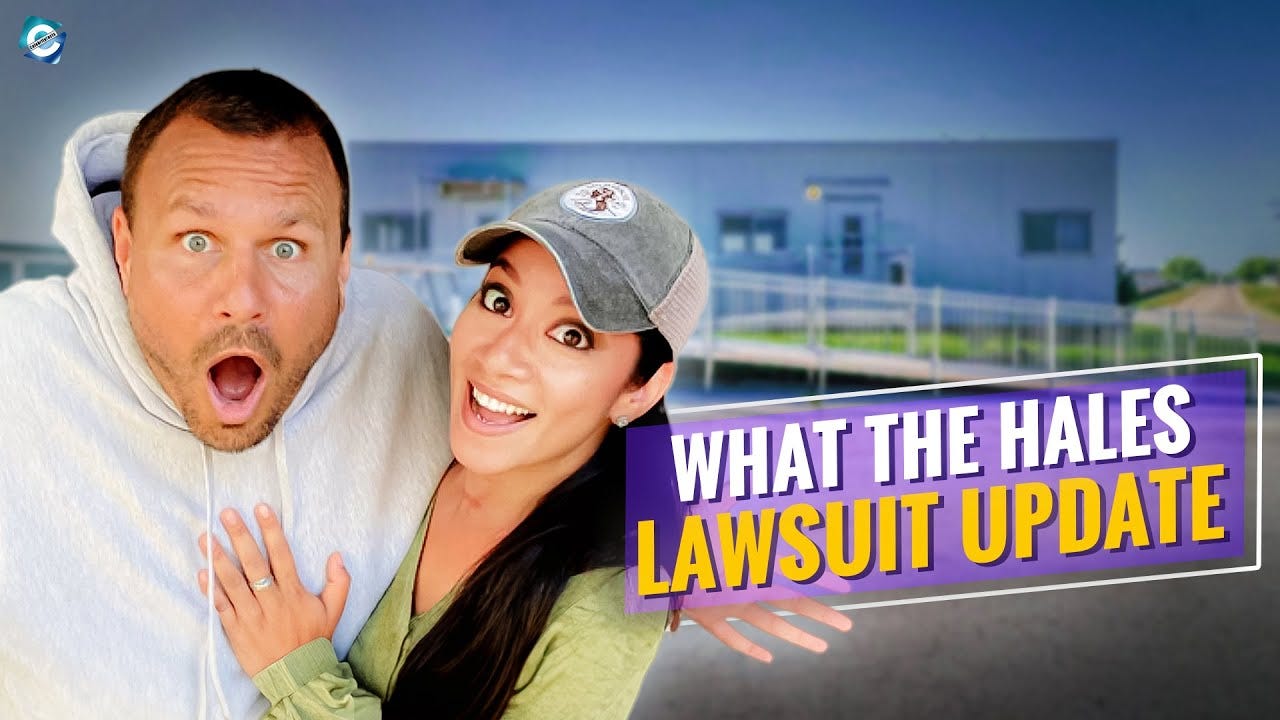By Dick LaFontaine and Richard Luthmann
In the latest episode of The Unknown Podcast, co-hosts Michael Volpe and Richard Luthmann engaged in a fiery exchange with attorney Bruce Matzkin about his defense of clients Lynette Preston and John Cook. The two are embroiled in a contentious federal lawsuit brought by YouTube content creator Jeremy Hales.
The legal battle, which began in May 2023, revolves around allegations that Preston and Cook posted defamatory signs near Hales’ Florida property, accusing him of heinous acts. Hales claims the signs were part of a broader campaign to defame and harass him.
Matzkin and his clients argue the case is a baseless attempt to generate content for Hales’ popular YouTube channel, What the Hale$.
Signs, Signs, Everywhere Signs
The exchange between Luthmann and Matzkin on The Unknown Podcast highlighted their differing perspectives on the case. Each made pointed arguments.
The controversy centers on a series of signs Hales claims were found near his property on Mother’s Day, 2023.
The signs contained false, defamatory, and malicious statements about Hales, accusing him of being a criminal without justification. According to the lawsuit, the signs said:
Jeremy Hales Raped my Daughter!
Jeremy Hales Has to Go! What the Hales?
Jeremy Hales OHIO Rapist
NO OHIO Rapists in Levy County - Stop Jeremy Hales
Jeremy Hales Needs to Go! No Child rapists in Levy Co!
Stop Jeremy Hales No Rapists in Levy Co!
According to Matzkin, though the signs carried shocking and defamatory messages, no photographic evidence of their existence has been provided. Instead, Hales used the signs as the basis to secure a protective order in Ohio before filing a federal lawsuit.
“The signs are a classic MacGuffin,” Matzkin argued, referencing the Hitchcockian trope of a plot-driving object. “They’re the excuse Hales needed to justify his legal campaign.”
Luthmann pushed back forcefully, questioning the authenticity of the signs and whether Hales orchestrated their placement to bolster his claims.
“Do you genuinely believe these signs were part of a manufactured narrative?” Luthmann asked pointedly.
Matzkin, unfazed, responded with confidence. “I have a handwriting expert who will testify that Hales wrote the signs himself. If that’s proven, this lawsuit loses all credibility,” Matzkin said.
Luthmann emphasized that the signs are pivotal to the case, and Hales claims that Preston and Cook admitted to placing them.
“The entire foundation of Hales’ claims rests on these signs. Without them, what’s left?” he asked.
Weaponized Justice for Content Creation
“One of my concerns is that this case isn’t about resolving a legitimate grievance,” Luthmann asserted during the podcast. “If it's about weaponizing the legal system and exploiting the court for content, then the signs are just the tip of the iceberg.”
Luthmann referenced a case he is covering about a TikTok influencer, Danesh Noshirvan, who uses fraudulent and dishonest methods, including AI, to hurt victims, including a Denton, Texas, Football Coach named Aaron De La Torre, who committed suicide in October.
SCOTUS Doxxer’s Dangerous Hypocrisy: TikTok Tyrant Faces Legal Reckoning Amid AI-Fueled Cancel Culture Chaos
By Dick LaFontaine and Richard Luthmann
Noshirvan is locking horns with other victims, who he has sued for millions in Fort Myers federal court, using the case as a vehicle to generate further content and outrage from his over 2 million followers.
Luthmann doesn't view Jeremey Hales' conduct as anything as outlandish as Noshirvan's and was still willing to give the YouTube content creator the benefit of the doubt.
“I reached out to Hales and haven’t heard back. I want to gauge him with my gut. But preliminarily, I don’t think he’s like Danesh Noshirvan. He hasn’t doxxed public officials. He doesn’t target people and destroy their lives,” Luthmann said.
He said he could “go both ways” on whether Hales is the victim or the villain.
“This looks more like the Hatfields and the McCoys than weaponized social media. And to a certain extent, it’s healthy to have enemies. The world would be boring without them,” Luthmann said. “However, the charges of anti-semitism are very concerning, and I want to hear what Hales has to say for himself.”
Luthmann also said that if the problem was “free-cost media,” Preston and Cook should raise the cost of the media development.
“The Federal Rules of Civil Procedure have an Offer of Judgment provision in Rule 68. That shifts the costs of litigation to the other side if an offer to end the case isn’t accepted. So, if Preston and Cook really believe they will win, they can give Hales a number,” Luthmann said.
If the YouTuber does not accept the settlement number and loses the case, then Hales would be responsible for all of the litigation costs from that point on.
“It’s one way to leverage the cost of media production. A single piece of paper can turn the content from cost-free to extremely costly - if Hales is wrong,” Luthmann said. “I’m not sure who is right yet, so I don’t know whether this strategy is viable. They probably both think they’re right.”
Hales and his supporters allege that Preston and Cook are doing exactly what they are being accused of.
Matzkin denied anyone was creating an “Anti-Hales Media Eco-System.”
Free Speech Implications
The conversation turned to the broader implications of free speech and social media’s role in the feud. Hales, who boasts over 700,000 subscribers on his YouTube channel, frequently documents his feud with Preston and Cook, including posting videos of their property and adopted daughter.
Matzkin argued that this behavior constitutes cyberstalking under 18 U.S. Code § 2261. He also said the YouTuber’s claims are illegitimate.
“Hales isn’t engaging in journalism,” Matzkin said. “He’s harassing my clients and monetizing it under the guise of free speech. This is about exploitation, not information.”
Luthmann countered by highlighting the importance of First Amendment protections.
“The line between free speech and harassment is fine but critical,” he said. “Unless Hales incited illegal actions or encouraged his followers to commit crimes, his speech is protected. However, the court must act if he crossed that line or induced others to do so.”
Volpe added his perspective, expressing skepticism about the merit of Hales’ claims.
“In his deposition, Hales couldn’t articulate any concrete harm caused by these alleged statements,” Volpe noted. “This seems more about creating drama than pursuing justice.”
Matzkin doubled down on his critique of Hales’ actions.
“This lawsuit is frivolous,” he said. “Hales has turned my clients into unwilling participants in his content empire. He’s using the judicial process as a stage, and my clients are the props.”
Luthmann acknowledged the potential harm caused by such actions but stressed the need for a careful legal approach, calling many of Hales’ deposition responses “good coaching” by Hales’ lawyers.
Luthmann was concerned that Matzkin’s approach involved “second-guessing” speech’s content, a mortal sin in the context of free speech.
“We cannot afford to chill legitimate speech,” he said. “But the evidence must be scrutinized to determine if Hales abused his platform or the law.”
Legal Issues About Social Media Creation
The lawsuit has already seen significant legal maneuvering. Preston and Cook filed motions challenging federal jurisdiction and the validity of Hales’ claims. While a judge dismissed extortion allegations, defamation and tortious interference claims remain.
Matzkin plans to seek sanctions against Hales, arguing that the lawsuit is a blatant abuse of the legal system.
“This case is a cautionary tale about how social media fame can distort the judicial process,” Matzkin said.
Beyond the courtroom, the feud has divided the Otter Creek, Florida community. Hales, who moved to the small town for what he described as “peace and quiet,” claims the hostile neighbors have targeted him.
Preston and Cook argue that Hales’ YouTube channel exploits their private lives for entertainment and involuntarily exposes them to the public eye.
“They’re private citizens being dragged through the mud by a powerful online figure,” Matzkin said. “The damage to their reputations and mental health is real.”
For Luthmann, the case raises critical questions about the limits of free speech and the responsibilities of content creators. He admitted he could be wrong about Hales if Preston and Cook can show legitimate bad acts: fraud, dishonesty, harassment, incitement, and anything else that would take the YouTuber’s activities “out of the category of speech.”
“If Hales encouraged dozens of CPS calls or orchestrated harassment campaigns, he’s crossed a line,” Luthmann said. “But the court must tread carefully to avoid chilling legitimate speech.”
As the case heads toward trial, it promises to set significant precedents for how courts handle disputes fueled by social media. Both sides are preparing for a high-stakes showdown that will test the boundaries of free speech, privacy, and justice in the digital age.
Only the court can answer whether Hales is a victim of defamation or a savvy manipulator of the legal system. We will continue to examine the evidence.

























Share this post